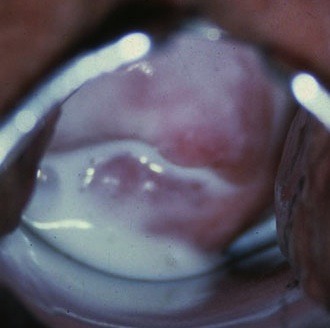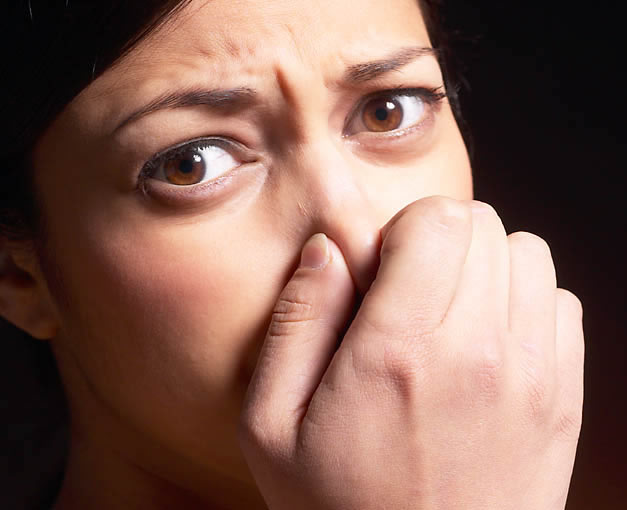I try to give you straight talk but never crudely. Therefore as I wade into conditions involving the genitalia, I’ll be sure to respect various sensitivities. That doesn’t mean I’m sugar-coating your information, it just means I am aware that you’re suffering and concerned by different scenarios.
One of those is bacterial vaginosis. There is an age after which women invariably start discovering that various things they do can disrupt the appearance, smell and content of their vaginal fluid. It’s certainly human nature to wonder if something has gone terribly wrong. Let’s pick up our Doctor-Couple conversation from earlier…
Patient: Yep! I have this grayish/whitish discharge that only happens after sex. And sometimes it itches around there. And it burns when I pee! No rashes or that other stuff, though.
Doctor: Ok. Let’s examine you…
All humans have various microorganisms that normally reside inside us at relatively low levels; different microorganisms inhabit different part of the body. They’ve set up a delicate balance (like an ecosystem, if you will) that, once settled doesn’t disturb us (their hosts) at all. If external or internal circumstances disturb that balance such that one set of organisms is disproportionately affected, overgrowth of the other organisms may occur. Many of you will recognize this as happening when you get a ‘yeast’ infection. It’s also what occurs when you develop bacterial vaginosis (BV). BV is the most common vaginal infection in the U.S. It’s more likely to be seen when you start having unprotected sex with a new partner, have multiple sex partners, are pregnant or douche (therefore, women who are not sexually active can have BV also). By the way, you don’t get BV from toilet seats or swimming pools.
The question everyone always has is “What’s the role of sex, especially sperm, in it?”. That’s asked because BV is often noticed after unprotected sex that includes ejaculation. Here’s where you learn the difference between ‘sexually transmitted’ and ‘sexually associated’. It is unclear what role sex has in the development of BV, but common thoughts include alterations in the pH of the vaginal fluid based on interactions with sperm/semen. It is known that the pH of women become more alkaline (less acidic) after exposure to semen, and that environment produces compounds causing the ‘fishy smell’. Yes, that’s real. We even have a real thing call a ‘whiff test’ as part of making the diagnosis.
The good news is BV is easily treated. The bad news is it needs to be treated, and it can recur even if it’s treated. Remember, it’s just an overgrowth syndrome. There are complications to not getting BV treated, especially if you’re pregnant. This makes it especially important that medication be taken to completion, even though you may feel better prior to that. Male partners do not need to be treated.
So this couple gets ‘off the hook’, even though they may decide to start using condoms. Unfortunately, some of the next sets of couples aren’t so lucky.
I welcome any questions or comments.



Dr. Sterling……….In your post you said that women need to be treated for BV, but not men. If you continue to have sex with the same man will you continue to get BV?
Hi, Stephanie. It’s hit or miss, but if your interactions with a male (particularly ejaculation) lead to BV, the better course of action is to use condoms. The frustration associated with either needing to constantly take medication or bouncing between BV and yeast infections can create a negative association with sex, which potentially wouldn’t be healthy for your relationship. Thanks for the question, and thanks for following Straight, No Chaser.
So, what if you are married to or considering marrying the person? If you have this reaction then you will have to wear condoms for a life time? Or maybe not marry them? What if you want to have children with them?
Hi, Stephanie. Part of what you’re asking me is a social concern and beyond the scope of the medical advice I provide. The bottom line is BV, intermittently treated, does not prevent you from having children or unprotected sex. At that point, it’s a choice. Condoms are an option. Thanks for your questions!
“not a Dr.” but have an opinion..lol..
I think the qualifier here is sex with a “new” partner. Think about it this way, your body is perhaps over reacting to what it sees as an invading foreign body being deposited inside of you. Given time and over sexual encounters, “most’ womans bodies will adapt to the chemistry of her partners. It is no different than when a fresh water river flows toward a salt water body of water. There are salt water fish and fresh water fish and then there are some that have adapted to live at various levels of the brine concentration in the middle. But that ability did not happen overnight, but was a successive process.
As well, there are exceptionally rare circumstanced that instead of your body learning to recognize your partners proteins as non threatening, I have read about women actually being allergic to their partners sperm. That would be highly unlikely.
Ensure you urinate after sex, to flush away bacteria. Drink cranberry juice daily to help prevent UTI’s as well and make sure you eat yogurt with pro-biotic to help balance the vaginal PH level. Also, go commando after sex, allowing heat and moisture to dissipate.
Finally, if you are prone to BV, try to reduce the amount of sugar in your diet: no pop, no juices, no sweet teas…even a lot of canned foods have a ton of hidden sugar in them so read labels! Excess sugar just tends to promote an environment where bad bacterias like to take over.
Nothing I have said will hurt you if you try it and if it works for you, then all the better.
Hi, rougedmount. The logic of your opinion is very good, but in medicine it’s all about the science. Bacterial vaginosis is an overgrowth of preexisting strains of bacterial in the vagina. The overgrowth occurs from a disturbance in the native environment (ecosystem if you will) of the vagina (this would be different that the immune response that would occur in the situation you postulate where the body perceives sperm as an invader). This disturbance is typically a result of the difference in pH (acidity) between the male sperm and existing vaginal fluids. In other cases, taking certain antibiotics kills off selected microorganisms, allowing others to grow out of balance – this is what a yeast infection represents in many instances. The female body is well suited to receive male sperm; that’s part of the immaculate design. Yes, there are individuals that are mismatched, and there are others in extremely rare instances to whom females may be allergic. That’s the exception, not the rule.
In other words, your conclusions and recommendations are on point, just not the pathophysiology of why. Great thoughts, though… As always, thanks for your support of Straight, No Chaser.